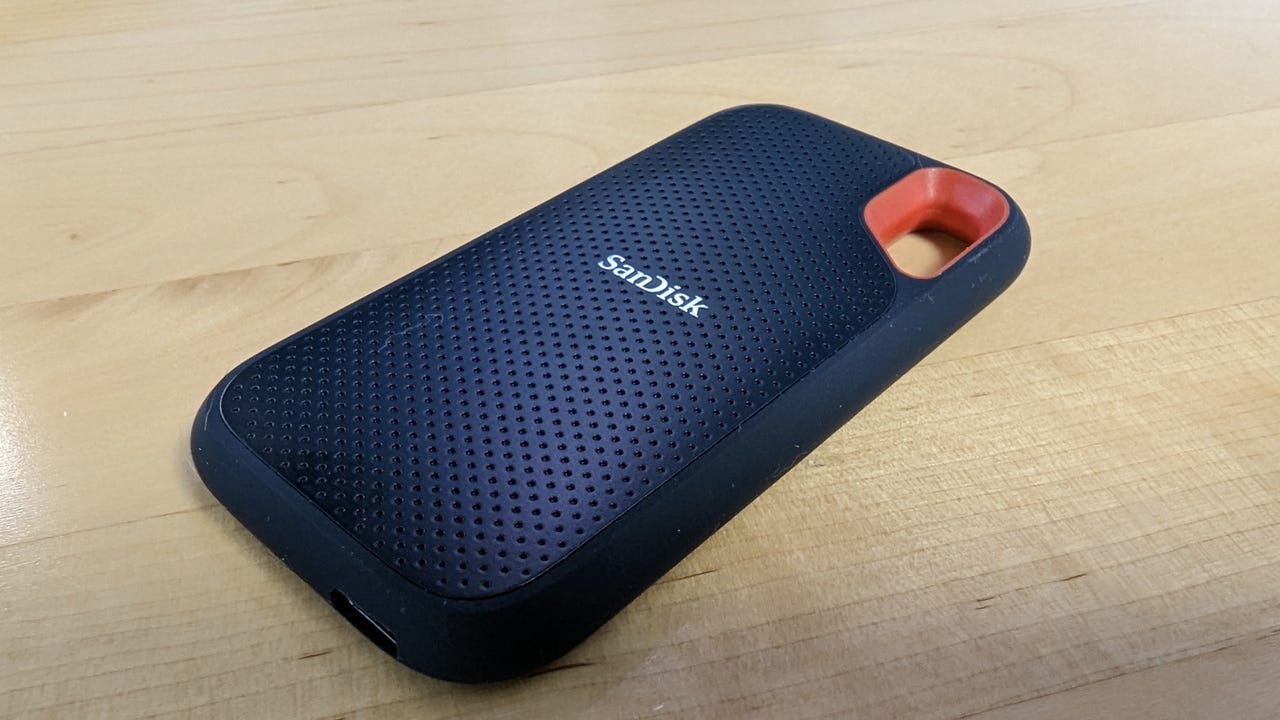'ZDNET Recommends': What exactly does it mean?
ZDNET's recommendations are based on many hours of testing, research, and comparison shopping. We gather data from the best available sources, including vendor and retailer listings as well as other relevant and independent reviews sites. And we pore over customer reviews to find out what matters to real people who already own and use the products and services we’re assessing.
When you click through from our site to a retailer and buy a product or service, we may earn affiliate commissions. This helps support our work, but does not affect what we cover or how, and it does not affect the price you pay. Neither ZDNET nor the author are compensated for these independent reviews. Indeed, we follow strict guidelines that ensure our editorial content is never influenced by advertisers.
ZDNET's editorial team writes on behalf of you, our reader. Our goal is to deliver the most accurate information and the most knowledgeable advice possible in order to help you make smarter buying decisions on tech gear and a wide array of products and services. Our editors thoroughly review and fact-check every article to ensure that our content meets the highest standards. If we have made an error or published misleading information, we will correct or clarify the article. If you see inaccuracies in our content, please report the mistake via this form.
Check your SSDs: What to know about the SanDisk/Western Digital data loss disaster

Are you backing up data to an external SSD made by SanDisk or Western Digital? Then you need to read on because you could be sitting on a ticking data loss time bomb that could cause you no end of headaches.
OK, so what's the deal here?
Back in May, several outlets reported that Reddit users were complaining about failing SanDisk Extreme SSDs. Subsequently, replacement drives provided by Western Digital, SanDisk's parent company, were also reported to be failing.
Western Digital then released a firmware update to address the issue. There was no mention of what users who had lost data should do, and it's unclear if this update fixed the issue.
Also: Hardware fails, but I've never lost data thanks to this backup plan
Now things have escalated to the point where Western Digital is facing a lawsuit over its storage drives, which accuses the company of knowingly selling defective SSDs.
The complaint says the company "engaged in a scheme to mislead consumers" about the extent of the problem, and claims that they continue to be defective after the firmware update, "according to reports from individuals who installed this fix."
The lawsuit says that Western Digital "may be selling these defective [drives] at steep discounts to get them out of inventory."
The lawsuit is seeking class action status and is looking for damages and legal fees.
Which SSDs are affected?
According to the Western Digital's firmware update page, the impacted products are from the SanDisk Extreme Portable SSD V2, SanDisk Extreme Pro Portable SSD V2, and WD My Passport SSD line, and lists the models as follows:
- SanDisk Extreme Portable 4TB (SDSSDE61-4T00)
- SanDisk Extreme Pro Portable 4TB (SDSSDE81-4T00)
- SanDisk Extreme Pro 2TB (SDSSDE81-2T00)
- SanDisk Extreme Pro 1TB (SDSSDE81-1T00)
- WD My Passport 4TB (WDBAGF0040BGY)
Users can enter their drive's serial number to find out if it is affected.
According to reports from affected users, the issue appears to be limited to drives manufactured after November 2022, although we have no official confirmation of that.
So, what's the problem?
According to reports, the drives appear to hit a problem once they are around half full, at which point they will start throwing up read and write errors. The drive then shows up as unformatted, and reformatting doesn't fix the issue.
Is the data gone?
Yes. There's nothing that the end user can do to recover it.
Also: How I recovered 'irreplaceable' photos off an SD card for free
As to whether a professional recovery company could recover the data, I'm not sure. I've not heard of anyone having their data recovered, but most services work on a "no recovery, no fee" basis, so if you're willing to foot what will be a sizable bill, it's an option.
I'm using an affected drive! What should I do?
Stop using it immediately!
Copy the data from it onto another drive as soon as possible, and do not use the drive anymore.
I'm using a different SSD from SanDisk or Western Digital. Can I trust it?
I'd like to say yes, and I've not been able to uncover any other drives that seem to be affected, but it's hard to know for sure until we have a clear statement from Western Digital.
I also don't see any reports that suggest other SanDisk products such as SD or microSD cards are affected.
What SSDs should I use instead?
I have a mix of external SSDs and HDDs from a variety of manufacturers. I don't buy a bunch of drives of one brand from one maker, because I know from past experience that issues like the one plaguing Western Digital and SanDisk can happen. By using a range of different drives, I'm protecting myself from a bad batch of hardware.
Also: You might be using the wrong microSD cards
Currently, I'm using drives from Samsung, Crucial, and OWC. I also back up to Synology NAS boxes.
Oh, and don't forget that there's also the cloud, where I use Backblaze, Dropbox, and also have storage with Amazon.
